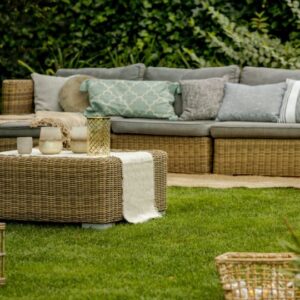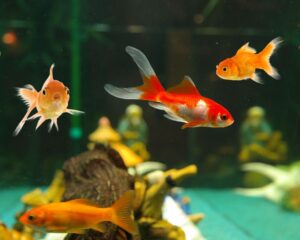All children enjoy playing games with their parents or caregivers. Playing board games with children is fun, educational and enjoyable. For parents, it can be interesting to get to know their child even more completely by doing a game. How does your child deal with loss, with rules, and does he or she already have some strategic insight, for example?
From what age can you start playing board games with your child?
You can start when they are very small. Now they still really enjoy doing something together with you. Moreover, it will benefit them for the rest of their lives. After all, you offer them a new alternative to fill their free time with friends or family. Together at the table, and not in front of a screen.
After what age can you play games with your children?
From about three years of age, most children can do some simple games. At this age they understand what “taking their turn” is and can achieve simple goals. Probably a regular die is a bit difficult, though. Therefore, it is more convenient to choose a game without a die or one with a color die. (By the way, there are dice that can only throw 1, 2 or 3 pips) It is important to offer games that are appropriate for their developmental level and abilities. As they get older, children can play more and more complex games. It is also recommended to play games together and provide explanations to help them understand the rules and improve their social skills.
What games can you start with?
Board games with children based on pictures and colors are suitable to start with. Think of memory, dominoes, color towers or lotto. The Haba brand has good quality games for young children that teach rules in a not too complicated way.
For young children, the following games are suitable to start with:
-
- Butter, cheese and eggs
- Memory
- Domino
- Hide-and-seek
- Ball toss
- Goose board
- Jigsaw puzzles
It is important to offer games that match the child’s developmental level and abilities. As children get older, they can play more and more complex games.
Does your child find it difficult to lose during a game?
Keep this in mind by naming what you see. For example, you say: Too bad, isn’t it? That now that you know a set (memory) it’s your turn to lose, or: Hey, it’s too bad you didn’t throw two again. It just made you angry. Don’t let your child win on purpose, no matter how tempting it may be. Your child will learn from all the feelings involved in playing games. You can, of course, agree that there is no winner at the end. There are also special games that are not about winning, but about cooperation. Ask at the better toy store for board games with children without having to win.
Don’t let your child win on purpose, however tempting it may be.
When your child learns to read and do math, there are suddenly many more game options. Don’t start too hard and watch your child. Quartet, rummicub, tri-ominos become fun. The game boxes indicate the age from which a game is suitable.
Recommended: junior games
When your child gets a little older, they can slowly start learning to play along with the big people games. There are special junior versions of many games, such as Carcassonne and Ticket To Ride, for example. Ideal to prepare them for the bigger board games. Carcasonne junior is even suitable from the age of 4.
Game games by age
There are board games for all ages, from children to adults. The age recommendation for games may vary based on personal preference and game complexity. Especially with young children, the interactivity and social aspect is important, more so than the game play and winning.
0-1 year
There are few board games specifically aimed at children between 0-1 years old because they are still too young to actively participate in games. It is more important to focus on interactive activities that contribute to their development, such as:
- Toddler gymnastics: with songs, movements and music help strengthen their motor skills.
- Sensory activities: small objects, soft toys, mirrors, colorful balls, etc. help with the child’s visual and tactile development.
- Reading: reading books or stories aloud help with language development and social interaction.
1-2 years
Below are some board games for children ages 1-2:
- Sorting shapes and colors: children can learn to distinguish shapes and colors by sorting pieces and placing them in the correct category.
- Building with blocks: improve fine motor skills and creativity by building blocks and experimenting with different building configurations.
- Playing with balls: improve coordination and motor skills by playing with balls and throwing or rolling them through the air.
- Hugs and dolls: Here children can improve their social and emotional skills by playing with hugs and dolls and using them as characters in stories.
- Musical Instruments: Here children can develop their musical skills by experimenting with different musical instruments and listening to the different sounds they make.
2-3 years
Board games for children aged 2-3 are the following:
- Puzzles: puzzles allow children to improve their fine motor skills and problem-solving abilities by putting pieces together to form a picture.
- Paintings and Drawings: enhance creativity and visual skills by painting and drawing with colorful materials.
- Books with pictures: This allows children to develop their language skills and imagination by listening to stories with pictures.
- Roll Play: improve social and emotional skills by playing with stuffed toys and dolls and using them as characters in stories.
- Movement games: improve motor skills by moving, dancing and jumping to music and songs.
3-5 years
Games for children aged 3-5 years:
- Great puzzles: children can improve their fine motor skills and problem-solving abilities by putting larger pieces together to form a picture.
- Building with Duplo blocks: good for fine motor skills and creativity by building larger blocks and experimenting with different building configurations.
- Board Games: this is good for improving language skills, social skills and strategic thinking by playing board games with their parents or friends.
- Dress-up clothes and role-playing games: This is where children can improve their social and emotional skills by using dress-up clothes and accessories in role-playing games.
- Sports and movement games: Here, children can improve their motor skills by moving, dancing and jumping to music and songs, and playing in sports and movement games.
5-7 years
The following games may be appropriate for children ages 5-6:
- More complex board games: children can improve their language skills, social skills, strategic thinking and numeracy skills by playing board games with more complexity with their parents or friends.
- Card games: children practice improving their social skills, strategic thinking and numeracy skills by playing card games with their parents or friends.
- Building kits: Here children can improve their fine motor skills and creativity by building more complex building kits.
- Dice games: good for numeracy skills, strategic thinking and improve social skills by playing dice games with their parents or friends.
- Stratego Junior: improve strategic thinking and social skills by playing in this tactical game with their parents or friends.
- Telling stories and acting: good for language skills, improve imagination and emotional skills by inventing stories and acting with their friends or parents.
6-10 years
Below is a list of board games for children ages 7 to 10:
- Board Games: Children can improve their strategic thinking, social skills and language skills by playing board games with family and friends.
- Card games: Children can improve their concentration, logical thinking and social skills by playing card games.
- Search and treasure hunts: Children can improve their problem solving, logical thinking and cooperation skills by working together on scavenger hunts and treasure hunts.
- Strategy and Adventure Games: Children can improve their imagination, strategic thinking and problem solving by playing strategy and adventure games.
- Sports and movement games: Children can improve their motor skills by moving and dancing to music and songs and playing in sports and movement games.
- Drawing, painting and crafts: Children can improve their imagination, expression skills and fine motor skills through drawing, painting and crafts.
- Dress up and role play: Children can improve their emotional and social skills by using dress up clothes and accessories in role play.
- Computer games: Children can improve their logical thinking, concentration and skills with new technologies by playing computer games.
- Escape rooms and puzzles: Children can improve their logical thinking, cooperation and problem solving skills by playing escape rooms and puzzles.
- Creative activities such as dance, music and drama: Children can improve their emotional and expression skills by participating in creative activities such as dance, music and drama.
10+ years
For 10+, we have the following list:
- Board Games: improve strategic thinking, social skills and language skills by playing board games with family and friends.
- Card games: improve concentration, logical thinking and social skills by playing card games.
- Strategy and adventure games: improve imagination, strategic thinking and problem solving by playing strategy and adventure games.
- Computer games: improve logical thinking, concentration and skills with new technologies by playing computer games.
- Escape rooms and puzzles: improve logical thinking, cooperation and problem solving skills by playing escape rooms and puzzles.
- Trivia and knowledge quizzes: improve knowledge and memory by playing trivia and knowledge quizzes.
- Creative activities such as writing, drawing, painting and photography: improve emotional and expression skills by participating in creative activities such as writing, drawing, painting and photography.
- Sports and movement games: improve motor skills by moving and playing in sports and movement games.
- High-intensity games: improve reaction time, concentration and strategic thinking by playing high-intensity games such as laser tag, paintball and other action-oriented games.
The following board games are suitable for children ages 10 and up and offer hours of fun: Monopoly, Catan, Cluedo, Risk, Stratego, Scrabble, Carcassonne, Ticket to Ride, Pandemic, Codenames, Munchkin, 7 Wonders and Dixit. These games offer challenge and strategy and are suitable for groups of different sizes and levels. Whether you are a fan of classics or looking for new adventures, there is a suitable game for everyone.
Games for kids to improve concentration and math skills
The following games can help improve children’s concentration and math skills:
- Memory
- Jigsaw puzzles
- Board games (such as Chess or Stratego)
- Thinking games (like Sudoku)
- Calculus games (like 2048 or 24)
- Card games (like Patience)
- Labyrinth games
- Redding and counting sums
- Community games with numbers (like Yahtzee)
- Construction games (such as Legos)
Game store or toy store nearby
Are you excited and would you like to visit a game store or toy store as soon as possible to pick out some fun games? Check out the map below for a game store near you!
Have fun playing!




















